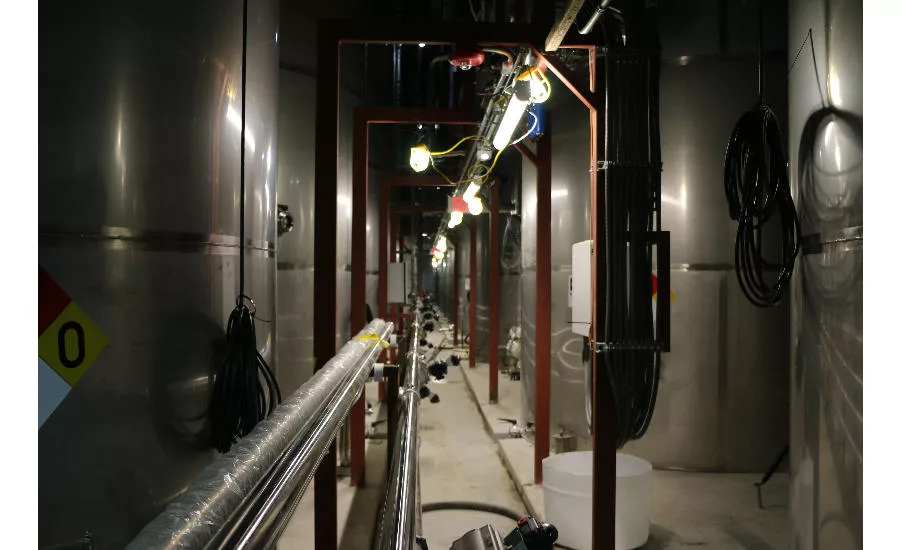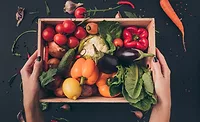Blockchain
Blockchain determines provenance, not purity
Blockchain can play an important role in track and trace, but not purity or freshness

At the end of 2018, to improve transparency of food sourcing, IBM developed a blockchain-based cloud network that, according to its press release, “enables greater traceability, transparency and efficiency” by establishing a better tracking mechanism for shipments.
One scan of the product’s pre-assigned QR code reveals each step in that product’s journey. The technology’s goal is to provide peace of mind for today’s conscientious consumer who wants to know exactly how their food arrived at the family table. From produce to meats and seafood, retailers are employing blockchain to track perishable shipments.
It’s true that blockchain technology allows retailers, suppliers and anyone who has access to the software, to have real-time information on a product’s origination and the stops it made along the way before it reaches its destination. However, when it comes to olive oil, blockchain can be useful in determining provenance and delivery path, but not the purity or freshness of the product.
Blockchain’s QR codes do deliver valuable pieces of information to buyers – the region/location where the olives are harvested, when the olives were crushed, filtered, packaged and shipped. But what it doesn’t provide is information on the oil’s oxidation levels, data that provides a true picture of what the oil has been through during the shipping process. Oxidation levels reveal how long the olives were left on the branch before harvesting, whether the oil was exposed to excessive light or heat or if chemical extraction was used in place of mechanical.
Catania Oils has been in business for more than 100 years when my great-great grandfather, Guiseppe Basile, began selling Olive Oil door-to-door in Boston’s Italian neighborhood. In those days, quality and purity was guaranteed by taste and a handshake.
Today, with food fraud costing the industry tens of billions of dollars per year, it is the responsibility of the both the supplier and the processing and packaging companies to do their due diligence to ensure the quality and freshness of every product they sell. Fraudsters contaminate olive oil by mixing EVOO with a lower-quality oil impacting both the health benefits and the taste.
Because oil adulteration and fraud can happen at any stage of this process, from supplier to the packaging, Catania Oils has invested in testing equipment and developed a detailed QA process. We’ve evaluated our process for possible points of contamination and test every shipment in our on-site laboratory run by AOCS-certified chemists.
Looking for quick answers on food safety topics?
Try Ask FSM, our new smart AI search tool.
Ask FSM →
Each shipment is rigorously tested at every stage of the process. As shipments arrive at Catania’s plant, they are tested outside the facility from the very bottom of the tank to the top. This primary check against International Olive Council’s (IOC) criteria profiles the UV, moisture and refractive index to ensure that it is Extra Virgin Olive Oil and meets the quality standards. if it does not pass, the oil does not make it inside the plant, and it is immediately returned to the supplier.
Once accepted into our facility, the oil is pumped into a clean, dedicated tank that houses only EVOO and no other oil. The entire system, from tank to filling lines, is dedicated exclusively for extra-virgin olive oil and never houses other oils. That tank is placed on hold and we run a second, full IOC test to ensure nothing has happened to the oil during transfer and that it is still intact.
If it passes that test, it then goes to the production floor – but before that happens, the pipes leading to the production line are flushed out to ensure that a prior extra virgin olive oil run does not affect the new oil.
Once the run is complete, all products from that line are placed on hold. We again sample the same oil and run another test to ensure that nothing has happened during the process that would affect the quality of the oil. We test the bottles that come out first, some at the middle of the run and several at the end to make sure that quality is the same throughout. The testing process is highly sensitive and immediately shows any adulteration.
From start to finish, the entire process takes between two and four days depending on the amount of oil received and the products being produced.
In addition to these procedures:
- No product is accepted without a tamper-proof seal
- We only use suppliers with an approved track record for quality who understand our own company’s quality standards
- No returned product is brought into the plant without examining it for possible contamination or adulteration
- Containers are all labeled with lot numbers
- Suppliers have their own security system
- Our chemists have consistently scored top of their class for AOCS testing
Retailers and suppliers can use the latest blockchain technology to determine the provenance of their olive oil and where the shipment stopped along the way, but when it comes to the quality, purity and freshness of olive oil, the responsibility rests with the company whose name is on the label.
Joseph Basile is President of Catania Oils, one of the Northeast’s leading processors and packers of edible oils including olive, vegetable, blended and specialty oils for bulk, food service and retail.






